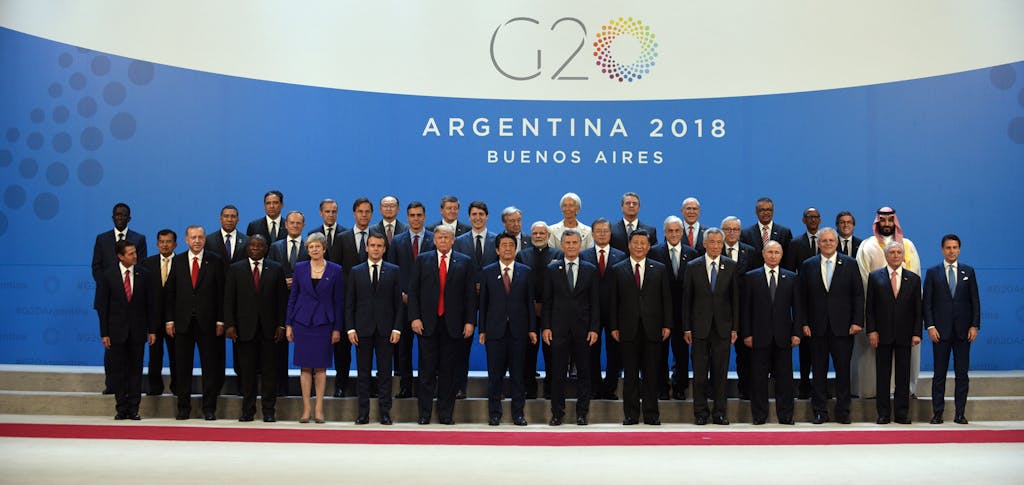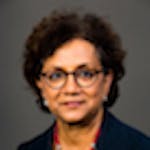In its earliest days, the United Nations Foundation committed to championing the rights of girls and women, in allegiance to the vision of equality enshrined in the UN Charter and because the dignity and agency of girls and women is essential for a more peaceful and prosperous world for all. 2018 was a year of challenge, but also change.
Geeta Rao Gupta, the Executive Director of the 3D Program for Girls and Women and UN Foundation Senior Fellow, and Michelle Milford Morse, our Vice President of Girls and Women Strategy at the UN Foundation, reflect on the year that was, and the year to come.
Michelle Milford Morse: So here we are in 2018, and the struggle for equality continues. Girls and women are still not equal, anywhere in the world, and in many ways and many places, girls and women’s rights are deteriorating and progress toward equality is stalling.
MMM: Given that, what still encourages you?
Geeta Rao Gupta: What keeps me going is that we have had moments like this in the past. Historically, social change has occurred by moving one step forward, two steps back. So, while this moment feels particularly challenging, the trend is toward progress and justice. This gives me hope. Especially given the strong resistance we see to the regression and backlash across so many countries around the world.
GRG: What encourages you?
MMM: I’m also heartened by the swells of courage that this moment has inspired – women daring to run for political offices, male allies picking a sign and marching with women, young people voting for the first time, the brave voices of the #MeToo era. That collective courage makes me feel hopeful.
MMM: But there are other words this moment evokes for me, too. Is there a word or two you’d assign to our plight right now?
GRG: Actually, I have a song in mind that captures how I feel – “Here We Go Again” by Ray Charles. It is exhausting to have to keep fighting for the same thing over and over again.
MMM: Exactly! I think often of the story the author Margaret Atwood tells about participating in the Women’s March in Toronto in 2017 and seeing a woman about her own age with a sign that said, “I can’t believe I’m still holding this sign.” There may have been an expletive in there, too. So I’d say, “incredulous” some days and “impatient” on others. But always hopeful.
GRG: How do you think we are making progress?
MMM: I am relieved and happy to see women running and winning elections and securing appointments in governments. Progress toward increased political engagement and leadership by women has been mostly fragile and slow. (Just look at the group photo from the G20 meeting that just took places in Argentina. There were fewer female heads-of-government posing than in any of the previous gatherings of the group.) But Letitia James was the first African-American woman nominated by a major party for statewide office in New York, and she will become the first African American and first woman to be elected Attorney General of New York. Seventeen black women ran for judicial seats in Harris County, Texas and all of them won. Karen Yarbrough was just sworn in as Cook County clerk in Chicago, a post never before held by a woman or an African American. Paula Dance just became North Carolina’s first African American woman sheriff.

Consider Aruba, led by Prime Minister Evelyn Wever-Croes, where women hold a significant number of the top jobs in government. Ethiopian members of parliament have elected Sahle-Work Zewde as the country’s first female president, so she will become Africa’s only female head of state, and half of the cabinet seats in Ethiopia are held by women.
The UN Secretary-General committed to the same thing when he began his term, calling gender parity as a personal priority, as well as “a moral duty and operational necessity.” And for the first time ever, women comprise more than 50% of the UN’s Senior Management Group and its Resident Coordinators.
MMM: Where do you see real progress?
GRG: I see progress happening at two different levels. The first is that girls and women’s voices are rising. Girls and women are speaking up everywhere – whether at the grassroots level, in schools, in parliaments, within corporate workplaces, at protests. And they are being heard and forcing a response. I also see progress happening at the level of local government. In our work at the 3D Program, we see that given the necessary tools and resources, local government officials are motivated to improve outcomes for their constituents and stay below the fray of national rhetoric. At the 3D Program, we are converging these two realms of progress – engaging local government to work more efficiently and strategically to address gender inequality and ensuring that girls and women’s voices are informing that process.
MMM: Has your work with the 3D Program changed your mind about conventional approaches to interventions for girls and women? Or solidified your point of view?
GRG: Our approach – what we call “convergent action” – was actually developed in response to the persistent limitations of conventional approaches, such as working in silos, limited use of data and evidence, and top-down approaches. It is also based on the idea that strategic investments in one sector can reap benefits for that sector, and trigger results in another.
Through our work in India, we have found an openness to the idea of convergence and a willingness to work differently. This has solidified my point of view that approaches to date have fallen short. We are working with partners in local government, civil society, and the private sector to try something different – plan together, hold each other accountable, and really listen to girls and women. Each partner brings important resources to the table. Civil society and the private sector bring technical expertise, innovations, and resources. Government is critical to sustainably reach girls and women at scale.
GRG: What is the one thing you would encourage governments to do to end discrimination against girls and women in their countries?
MMM: The laws! I would encourage governments to eliminate regressive and harmful laws. Approximately 104 economies still have laws preventing women from working in specific jobs. Nearly 60 economies have no laws on sexual harassment in the workplace. In 18 economies, husbands can legally prevent their wives from working. It’s great that Saudi Arabia finally lifted its ban on female drivers, and that Jordan, Lebanon, and Tunisia repealed laws that allowed rapists to escape punishment by marrying the women they raped. But meanwhile, Russia decriminalized some forms of domestic violence. Governments are sanctioning discrimination and threatening the rights and well-being of women through their laws. That has to end.
MMM: What else do you think governments should do?
GRG: I think governments should listen to girls and women. They should understand that feedback is not always criticism. It can be useful and constructive. Constituents – particularly girls and women – know what they need, and they often know the best way to achieve their goals.
MMM: What’s the problem that worries you most?
GRG: What worries me most is that over the years, I have seen funding for community-based organizations and civil society organizations dry up. These organizations serve as the main platforms to mobilize girls and women and are the key drivers of change. In the 1990s, there was sustained funding for women’s organizations and grassroots organizations leading up to the global conferences on population and development, human rights, environment, and women. This led to progressive commitments at those conferences. But since then, the very groups that drove change are being left out of the process. Funding is now issue-specific, rather than focused on strengthening organizations and providing them with the platforms to organize and strategize.
GRG: What problem worries you most?
MMM: Violence against women. It’s so pervasive and too often seen as inevitable and immutable. It’s the challenge that undermines all our hopes for girls and women. A woman who is neither safe nor free cannot fulfill her potential. So, I’m grateful that the UN and the European Union launched the Spotlight Initiative, a new, global, multi-year initiative focused on eliminating all forms of violence against women and girls. Spotlight is bringing focused attention to this issue, moving it into the spotlight and placing it at the center of efforts to achieve gender equality, where it should be. Increasing women’s participation in peace and security – from peacekeeping to peacebuilding – is fundamentally important.
MMM: What persistent problem for girls and women did you once think we would have solved by now?
GRG: Providing a fair return on women’s labor. Unequal pay still persists – even in the richest countries! So much of women’s work – work that supports families and households and contributes to community well-being and national development – is unpaid, unacknowledged, and not counted.
GRG: Is there a vexing problem you thought we would have solved by now?
MMM: I find it frustrating that contraception is still controversial. It shouldn’t be – it’s as fundamental to the health of a girl or woman as immunizations, clean water, and nutrition. It’s necessary for her to fulfill her education and economic goals. In fact, no country has emerged from poverty in the last 50 years without expanding access to contraceptives. And world leaders agreed that family planning was a basic human right in 1968. So, I find the continuing struggle to expand access to modern contraception astonishing.
MMM: If you had a magic wand, what’s the one thing you’d grant every adolescent girl?
GRG: The unfettered opportunity to learn, grow, and laugh – which requires access to a good quality education, freedom from violence, and good health and nutrition.
MMM: Yes! And then let’s add equal protection under the law and the unquestioned ability to decide if, when, and whom she marries.
GRG: What are you looking ahead to in 2019?
MMM: We are in a moment of real regression, but we know it, and we are poised to counter it. In 2019, I hope that we continue to see more political participation by and for women, everywhere, and that we find ways to support grassroots women’s movements, particularly movements lead by young women, women of color, and migrant, refugee, gay, and transgender women, and that include that fair-minded men.
MMM: What are you looking ahead to?
GRG: In 2018, resistance led to key issues for girls and women being put on the global radar – safety, increased economic opportunity, and greater political participation. I am also hoping that in 2019, those three strands of activism come together so that we have a convergence of grassroots movements and see an increase in broad support for girl and women’s rights.




 View All Blog Posts
View All Blog Posts

